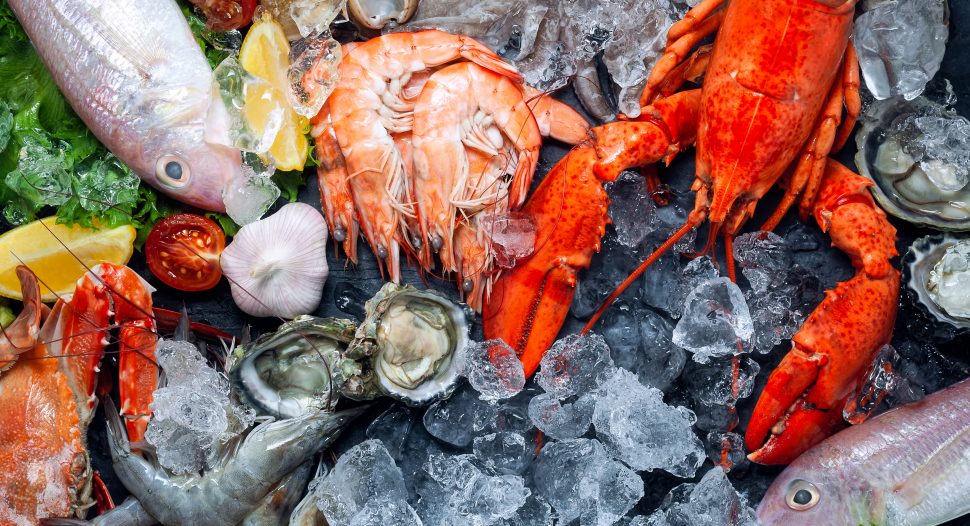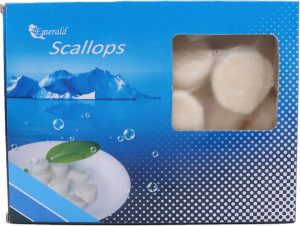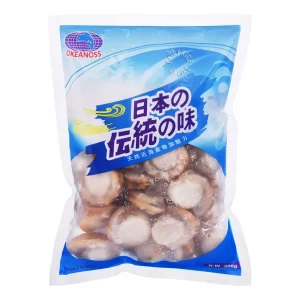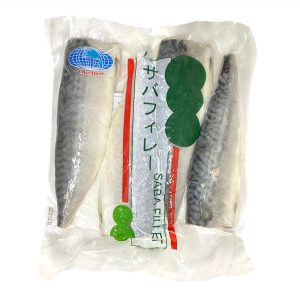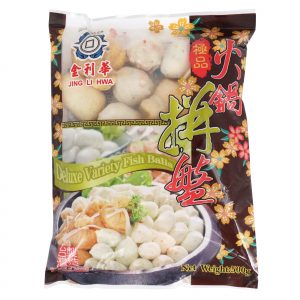Fresh is always better. Or is it really?
That might be one of the questions you have when presented with the option to buy frozen seafood. Well, the answer to that question could surprise you!
Keep reading on for the 4 reasons to embrace frozen seafood every day in your cooking!
1. Longer shelf life
All food spoils quickly the moment it is harvested, so our ancestors would freeze meat on ice to preserve them. Technological advancements in food-freezing only occurred in the late 1800s and it was found that meats did taste better when frozen quickly at very low temperatures¹ such as -20°C. This process is now known as flash freezing!
Freezing has been a natural and trusted practice for centuries. Frozen seafood enjoys a longer shelf life which means that you can prepare it for cooking any time you want to. To prepare frozen seafood like scallops, you can set them on a plate or tray lined with a tea towel to absorb excess moisture. This helps them to thaw evenly and safely.
Frozen seafood should always be thawed in your refrigerator the night before you plan to cook it² for the best results.

Pre-boiled scallops can simply be steamed further and served plain. Sprinkle lightly with salt and other ingredients such as soy sauce and honey, if you prefer that!
Tip: Rinse the scallops with a little bit of lemon juice, which brings out the natural sweet and seafood umami flavour of scallops!
2. Greater savings
The longer shelf life of frozen seafood means that everyone enjoys the savings on logistics such as transportation.These savings are also passed down to you, the customer. As we are currently running a seafood fair from 22 to 28 April, these already value-for-money frozen seafood options just got even better!
Speaking of which, there’s never been a more affordable and versatile seafood than frozen prawns. It’s great to have on hand to add into fried rice or noodles easily!
Crunchy with a mild sweetness, these Frozen Jumbo Tiger Prawn Meat can even be tossed on the grill as it is without any seasoning! It can also save you the hassle of preparation before cooking — and also less trips just to tick off one or two items on your grocery checklist!
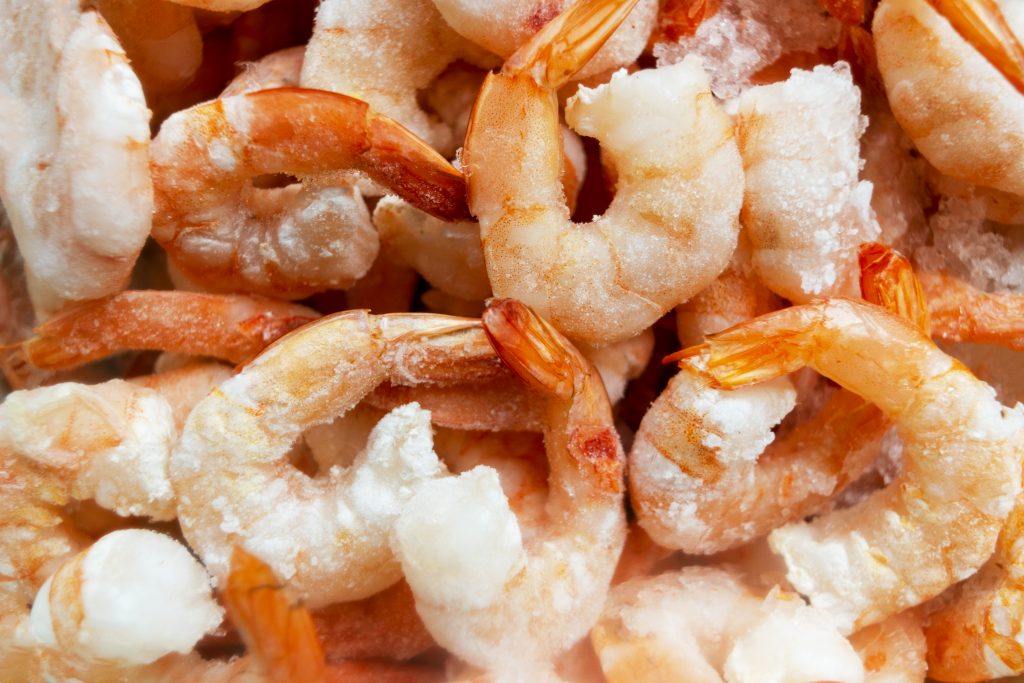
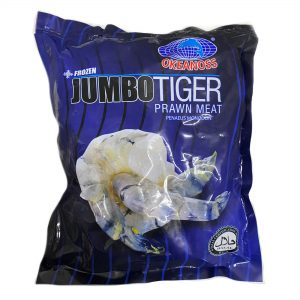
Okeanoss
Frozen Jumbo Tiger Prawn Meat
Fun fact: A harvest of prawns can be frozen as a block or in Individually Quick Frozen (IQF) methods. This means that each prawn is frozen separately. Compared to block-frozen prawns, IQF preserves the higher quality of prawns for longer⁴.
3. Unparalleled convenience
Available all year round, frozen seafoods are usually pre-cleaned, processed, cut, portioned and packaged so there won’t be anything left to waste, like these fish fillets!
Have a few of these frozen saba fillets on hand for an added source of protein in your meals! . Saba is an incredibly nutritious fish that’s easy to cook and widely favoured in many cuisines, particularly Japanese!
Frozen barramundi is another versatile option that can be used in both Western and Asian cuisine.
If you’re holding a cosy steamboat night with friends or family, you need to include frozen fishballs on the menu! Simply fill up a bowl with a variety of the fishballs in their frozen state and allow guests to help themselves. It needs to be boiled for just five to six minutes before it’s ready to eat. Easy peasy!
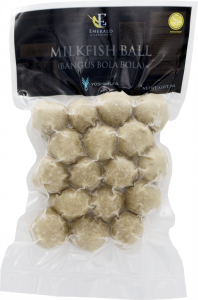
Emerald
Milkfish Ball
Available at your nearest FairPrice store here
4. Greater variety in any season
Lastly, frozen seafood embraces sustainability! It decreases waste by taking advantage of seasonal bounty to spread its availability out⁵. In fact, the import of seafood is regulated by the Singapore Food Agency’s Licensing and Permits Group, Food Trade Department⁶, and there are certain products that cannot be imported fresh due to the possible health risks.
Food safety and preparation tips
Frozen seafood should be the last thing you purchase before heading home. Use a cooler bag and pack it with bags of of fresh ice⁷ that are available at selected stores.
You should also look out for:
✔️ Colour
No ice crystals or discolouration should be visible, as these are the tell-tale signs of a possible freezer burn due to improper storage.
✔️ Packaging
It should be fully sealed with the contents unexposed to ensure peak freshness.
Storage tip: Upon reaching home, you can repack your frozen seafood into smaller portions (vacuum sealed or cling wrapped in an airtight container) from when it is still frozen. This will help you with thawing only what you need before cooking!
Your freezer should also not be crowded, ideally at maximum 70% occupancy. This will prevent drops in temperature that may result in changes to the frozen seafood’s condition.
Frozen seafood needs to be thawed in your refrigerator overnight before cooking. Thawing at room temperature is a big no-no as this can breed food poisoning bacteria and allow them to multiply to high levels⁸. Also, try not to refreeze frozen seafood. This is because of the bacteria that is already present in the meat. There may also be a loss of quality because of the moisture loss in the time that it’s been left to thaw⁹.
We hope that this article has convinced you to give frozen seafood a try, if you haven’t already done so!
Still not convinced? We’re currently running a Frozen Seafood Fair (3 – 16 August 2023) with attractively priced deals at a FairPrice store near you! Locate it here.
***
References:
¹ Messing, L 2021, The history of preserving food at home, Michigan State University, 7 March 2022
² The Better Fish 2020, 4 reasons you should consider frozen vs. fresh fish, Australis Aquaculture, viewed 7 March 2022
³ Shaw, H 2019, Why frozen fish may be better than fresh, The Spruce Eats, viewed 7 March 2022
⁴ PT. Puri Pangan Utama, The advantages of frozen shrimp, published 21 Dec, viewed 7 March 2022
⁵ S. Benwick, B 2018, Buying frozen fish isn’t what it used to be. Here’s what you need to know., The Washington Post, viewed 7 March 2022
⁶ Singapore Customs 2022, Singapore Food Agency (Seafood), viewed 9 March 2022
⁷ myfoodbook, How to store and freeze fresh seafood, viewed 9 March 2022
⁸ National Environment Agency 2016, Guidelines on thawing of food, viewed 9 March 2022
⁹ Amidor, T 2021, Can you refreeze meat, fish or poultry that has thawed?, Food Network, viewed 9 March 2022
